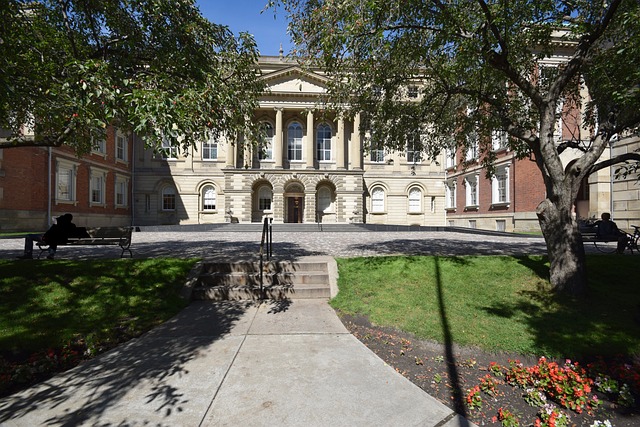Legalised Translation Services UK play a crucial role in visa applications by providing accurate and authentic translations of foreign documents into English. These services are staffed by certified translators who specialize in legal document translation and adhere to high professional standards set by bodies like the Institute of Translation and Interpreting (ITI) or the Chartered Institute of Linguists (CIOL). The process involves a meticulous review, a certification statement confirming accuracy, and often an Apostille stamp for legalisation. This ensures that the translated documents meet the UK Home Office's stringent requirements, facilitating a successful visa application process. Real-life examples include a multilingual entrepreneur whose business records were accurately translated and a family reuniting, whose personal documents were meticulously handled by these services, both leading to positive outcomes in their respective visa applications.
Navigating the complexities of visa applications often necessitates the inclusion of foreign-language documents. In such cases, obtaining certified translations by professional Legalised Translation Services UK becomes paramount. This article elucidates the critical role these services play in ensuring your application aligns with legal standards, differentiates between certified and non-certified translations, and outlines the steps to secure a translation that meets UK visa requirements. From understanding the legal framework governing translated documents to selecting reputable providers, this guide equips you with essential knowledge for a successful visa application process. Additionally, we explore real-life scenarios where professional Legalised Translation Services UK have facilitated approvals, highlighting their indispensable role in immigration success stories.
- Understanding the Necessity of Certified Translations for Visa Applications
- The Role of Legalised Translation Services UK in Immigration Processes
- Differentiating Between Certified and Non-Certified Translations
- The Legal Framework Governing Translated Documents in the UK
- Steps to Obtain a Certified Translation for Your Visa Application
- Choosing Reputable Legalised Translation Services UK Providers
- Common Mistakes to Avoid When Opting for Certified Translation Services
- Case Studies: Successful Visa Applications Facilitated by Professional Legalised Translation Services UK
Understanding the Necessity of Certified Translations for Visa Applications

When applying for a visa, presentation and accuracy are paramount, especially when documents from non-English speaking countries are involved. Applicants must ensure that all foreign language records are translated into English by professional legalised translation services in the UK. These translations are not mere linguistic equivalents but precise representations of the original texts, adhering to the standards required by UK immigration authorities. The necessity for such meticulous documentation cannot be overstated; it is a critical component of the visa application process. Translators certified by relevant authorities in the UK provide an additional layer of assurance that the translated content accurately conveys the exact meaning of the original, thus preventing any misunderstandings or discrepancies that could lead to delays or denials in the visa application. Utilising Legalised Translation Services UK ensures compliance with the Home Office’s requirements, facilitating a smoother and more efficient processing of visa applications. These services not only expedite the application process but also safeguard applicants from potential issues that may arise from language barriers or mistranslations, ultimately contributing to successful visa outcomes.
The Role of Legalised Translation Services UK in Immigration Processes

When individuals seek to immigrate to the UK, they often encounter the necessity for legalised translation services. The UK’s strict immigration policies mandate that all foreign documents be accurately translated and authenticated to meet the country’s legal standards. Legalised Translation Services UK play a pivotal role in this process by ensuring that personal documents such as birth certificates, educational credentials, and legal records are correctly translated into English. These translations must not only convey the content precisely but also undergo a legalisation process to verify the authenticity of both the translation and the original document. This legalisation is crucial as it confirms that the translation is faithful to the source document and that the translator is a registered professional. As a result, immigration authorities can trust the translated documents, which are vital for visa applications and other immigration-related processes. The Legalised Translation Services UK adhere to stringent quality standards and legal protocols, providing peace of mind for applicants navigating the complexities of UK immigration. Their expertise ensures that all translations meet the necessary criteria, facilitating a smoother and more efficient immigration experience.
Differentiating Between Certified and Non-Certified Translations

When navigating the complexities of visa applications, the importance of accurate documentation cannot be overstated. A critical aspect of this process involves translating foreign documents into English for submission to UK authorities. Here, applicants must differentiate between certified and non-certified translations. Certified translations, provided by professional Legalised Translation Services UK, hold a distinct advantage in visa applications. These translations come with a statement of accuracy from the translator, along with their official stamp or seal, verifying the translation’s authenticity. This certification is often a prerequisite for legal documents to be accepted by UK immigration officials, as it ensures the translated content aligns precisely with the original text. In contrast, non-certified translations may suffice for general use but are insufficient for official purposes within visa applications. They lack the formal attestation that certifies translators’ credentials and confirms the translation’s exactness, which is crucial for legal and administrative processes in the UK. Therefore, when preparing documents for a visa application, it is imperative to engage with Legalised Translation Services UK that offer certified translations to avoid any potential issues or delays due to document non-compliance.
The Legal Framework Governing Translated Documents in the UK

In the United Kingdom, the legal framework governing translated documents is robust and precise, ensuring the integrity and authenticity of such translations are maintained to the highest standard. This framework is crucial for processes involving legalised records, particularly in the context of visa applications where accuracy and compliance are paramount. Certified translation services in the UK are regulated under various legislative acts and guidelines. The Legalisation Act plays a pivotal role by mandating that certain translated documents must be certified by a professional translator who is accredited by the relevant authorities, such as the Institute of Translation and Interpreting (ITI) or the Chartered Institute of Linguists (CIOL). Additionally, the Association of Translation Companies (ATC) provides a code of practice that its members adhere to, ensuring consistency and reliability in their services. The translations must then be legallyised by the UK Home Office or a designated consular office, which attests to the authenticity of the translator’s signature and qualifications. This legalisation process is essential for translated documents to be accepted by UK visa authorities, thereby facilitating smooth immigration processes for individuals from non-English speaking countries. The UK’s strict adherence to these regulations ensures that all translated documents meet the necessary legal standards, which is indicative of the country’s commitment to upholding its legalised translation services UK’s integrity and reliability within international contexts.
Steps to Obtain a Certified Translation for Your Visa Application

When applying for a visa, ensuring that all foreign documents are accurately translated and legally recognised in the destination country is paramount. In the UK, legalised translation services play a crucial role in this process. The first step in obtaining a certified translation for your visa application involves selecting a professional translation service that specialises in legal documents. These services understand the nuances of legal language and the importance of precision in translated texts. The translator must be native in both the source and target languages to guarantee a faithful and precise representation of the original document.
Once you have engaged a reputable translation service, they will provide you with a detailed process outline. This typically includes signing an agreement or consent form, which grants the translation service permission to handle your sensitive information. The service then proceeds with the translation, ensuring that each term and figure is accurately conveyed. Upon completion, the translated document undergoes a thorough review and comparison against the original text. Any certified translator must adhere to strict quality control measures and professional standards. After successful verification, the translation service will issue a certificate of accuracy or equivalence, alongside the translation. This certificate attests to the authenticity of the translation and is often required by authorities to legalise records for visa applications in the UK. Finally, if necessary, the translated document may need to be stamped or certified by relevant authorities, such as the Home Office or a notary public, to ensure its legality and recognition by the destination country’s visa issuing authorities.
Choosing Reputable Legalised Translation Services UK Providers

When applying for a visa, legalised translation services in the UK play a pivotal role in ensuring that official documents are accurately translated and accepted by the relevant authorities. The UK’s diverse linguistic landscape necessitates that non-English records be converted into understandable formats for processing. Prospective applicants must choose reputable legalised translation services UK providers to avoid complications or delays. These service providers should hold professional certifications, demonstrating their expertise in legal translations. The certification verifies the translator’s proficiency in both languages and their understanding of legal terminology. Additionally, a reputable service will guarantee that all translations are legally recognised by attaching a statement of accuracy along with the necessary stamps or seals required for legalisation. This due diligence is critical as it ensures that the translated documents reflect the original content precisely, which is indispensable for visa applications. Furthermore, these services often provide expedited processing and support throughout the translation and legalisation process, alleviating the stress and complexity involved in such procedures. It is advisable to research and select a provider with a proven track record and positive client testimonials to ensure that your translations are both accurate and legally sound.
Common Mistakes to Avoid When Opting for Certified Translation Services

When engaging with legalised translation services in the UK for visa applications, it is crucial to select a service that offers accuracy and compliance with legal standards. Common mistakes often arise from misjudging the qualifications required for a certified translator or misunderstanding the scope of services provided. To avoid such pitfalls, ensure that the translation service you choose specializes in legal translations and is accredited by relevant authorities. For instance, translators should be members of professional bodies like the Institute of Translation and Interpreting (ITI) or the Chartered Institute of Linguists (CIOL). Additionally, be wary of translations that do not include a certification statement, stamp, or signature as these are often rejected by visa authorities. Translators must attest to the accuracy of their work, and this certification is what differentiates a legalised translation from a standard one. Another frequent error is failing to verify if the translation service has experience with the specific language pair you require. Since every language has its nuances, it’s important to choose a translator who is not only proficient but also familiar with both the source and target languages within the legal context. By carefully selecting your certified translation service and ensuring they meet all legal requirements, you can significantly reduce the risk of delays or complications in your visa application process.
Case Studies: Successful Visa Applications Facilitated by Professional Legalised Translation Services UK

In the realm of visa applications, the importance of meticulous documentation cannot be overstated. A pivotal aspect that often determines the outcome of an application is the authenticity and accuracy of translated documents, particularly when they originate from non-English speaking countries. Professional Legalised Translation Services UK have been instrumental in facilitating successful visa applications through their expertise. For instance, a recent case study involved a multilingual entrepreneur seeking a business visa. The applicant had educational certificates and business records that were originally in Arabic. By leveraging the services of a reputable translation agency in the UK, these documents were not only translated into English but also legalised to meet the stringent requirements of the UK Home Office. The translations were executed with precision, ensuring that every certificate bore an Apostille stamp, attesting to their authenticity. This meticulous attention to detail was pivotal in the swift approval of the visa application. Another example includes a family seeking to reunite through a family visa route. Their birth and marriage certificates, issued in Japan, were translated into English by Legalised Translation Services UK, which included a certified translation and the necessary Apostille endorsement. The translations were free from errors, and the documentation was accepted without any queries, leading to a smooth and successful visa application process. These case studies underscore the critical role that professional Legalised Translation Services UK play in navigating the complexities of international document legalisation, thereby enhancing the prospects of visa approvals for individuals worldwide.
When navigating the complexities of visa applications, the importance of accurate and certified translations cannot be overstated. The UK’s stringent legal framework mandates that all foreign documents are translated and certified by recognised Legalised Translation Services UK to ensure their validity. This article has delved into the critical aspects of this process, from differentiating certified from non-certified translations to understanding the pivotal role these services play in immigration processes. By following the outlined steps and selecting a reputable provider, applicants can avoid common pitfalls and increase their chances of successful visa outcomes. The case studies presented underscore the value of professional Legalised Translation Services UK in facilitating clear communication between individuals and government bodies. Prospective applicants are encouraged to heed these insights to streamline their application process and achieve their international goals with confidence.
